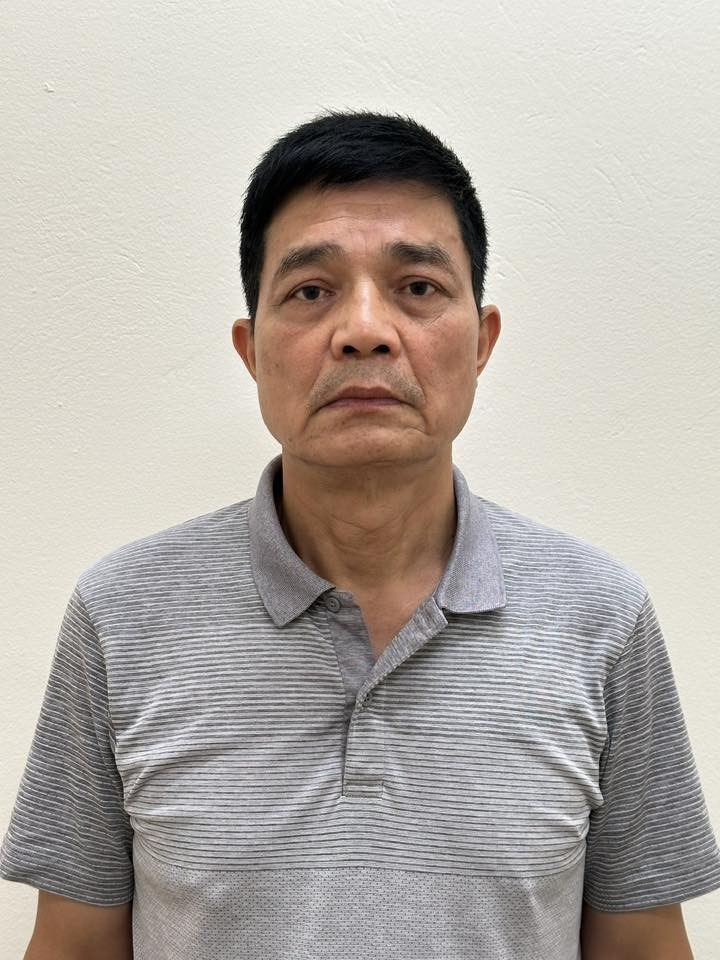
The police have uncovered cases of trading and producing fake food products. These serious violations of food safety, affecting consumer health, have raised questions: Is there lax management or even complicity in enabling substandard food?
Most recently, the Criminal Investigation Agency of the Ministry of Public Security (MPS) initiated a case and detained Nguyen Thanh Phong (former Director of the Food Safety Department under the Ministry of Health (MOH) and four other officials of the Food Safety Department for the behavior of receiving bribes.
These four officials include Dinh Quang Minh, Director of the Food Safety Application and Training Center; Nguyen Thi Minh Hai, Deputy Director of the Food Safety Application and Training Center; Le Thi Hien, Level-2 Specialist, Food Safety Application and Training Center; and Cao Van Trung, Deputy Head of the Poisoning Surveillance Department.
Nguyen Thi Minh Hai was subjected to a residence restriction, while the other four suspects were detained.
To expedite the appraisal, post-inspection, and issuance of GMP Certificates for MediUSA and MediPhar factories, Manh and Hoang paid over VND1 billion to the appraisal team (led by the Food Safety Department) to reduce recorded errors, provide guidance on corrections, and allow time to address issues.
During the correction process, MediUSA and MediPhar made superficial, formalistic efforts to comply. Cao Van Trung, as Deputy Head of the Poisoning Surveillance Department, evaluated the companies’ correction reports based solely on documents and photos they submitted, without verifying their accuracy.
As a result, the Food Safety Department issued GMP Certificates to MediUSA and MediPhar, enabling these companies to produce large quantities of fake food products.
The investigation into the fake milk case initially identified nine fake products, generating illicit profits, harming consumers’ rights, and causing public outrage.
The investigation uncovered violations in the issuance of Product Registration Certificates. Nguyen Nang Manh and Do Manh Hoang instructed employee Hoang Thi Huong to pay over VND2 billion to a specialist handling product registration applications at the Food Safety Department.
The investigation revealed violations by Food Safety Department officials in the appraisal, post-inspection, and issuance of four Good Manufacturing Practice (GMP) Certificates for MediPhar and MediUSA factories, as well as 207 Product Registration Certificates for nine companies owned by Nguyen Nang Manh.
Since 2016, Nguyen Nang Manh and accomplices have organized and operated nine companies, MediPhar, and MediUSA factories to produce and distribute a particularly large quantity and variety of fake functional food products.
The exposure of the "backer" supporting the production and distribution of fake functional foods has shocked the public, as the "shield" protecting consumers was easily breached by money.
According to Nguyen Thanh Phong’s initial testimony, his subordinates who conducted post-inspections at businesses gave him "envelopes" as "thanks" from the companies.
In an interview with VietNamNet, Dr Lawyer Dang Van Cuong said among corruption and abuse-of-power crimes, bribery is a particularly serious offense, which may be subject to a death sentence.
Receiving bribes reflects moral and ideological decay, trading state authority for personal gain, violating public service ethics and the law, and undermining the integrity of public duties and the state’s reputation among the people.
The lawyer noted that this is a complex criminal case involving multiple suspects, businesses, and prolonged criminal activities linked to various organizations.
Thus, the investigation agency will continue to clarify the actions of the suspects, officials at the Food Safety Department, to uncover the methods, tactics, and the amount of bribes received, for handling in accordance with the law.
In addition to prosecuting suspects for bribery under Article 354 of the Penal Code, the agency will investigate acts of giving bribes, and if sufficient evidence is found, those who offered bribes will be prosecuted under Article 364 of the Penal Code.
According to the lawyer, combating substandard food and complicity in such activities is strongly supported by the public. The Party and the State are currently determined to strictly address violations related to food safety, fake goods, counterfeits, and low-quality food products.
Beyond prosecuting those directly committing food safety violations, authorities will harshly deal with those who enable or tolerate substandard food, especially individuals with authority who engage in false advertising.
“To effectively combat violations of food safety regulations, production, and trading of fake, counterfeit, or substandard food products, strict handling of violations is essential, particularly the actions of businesses and state management agencies in these sectors,” Cuong said.
T. Nhung